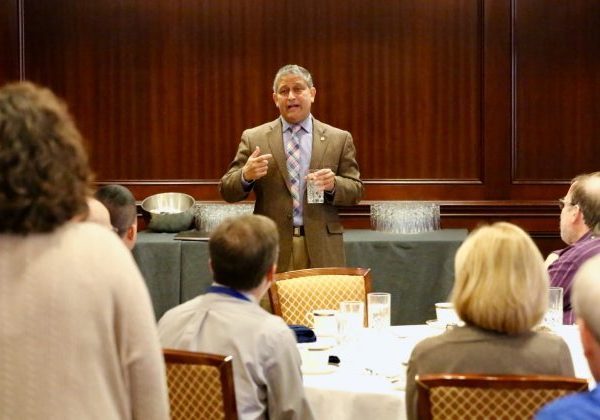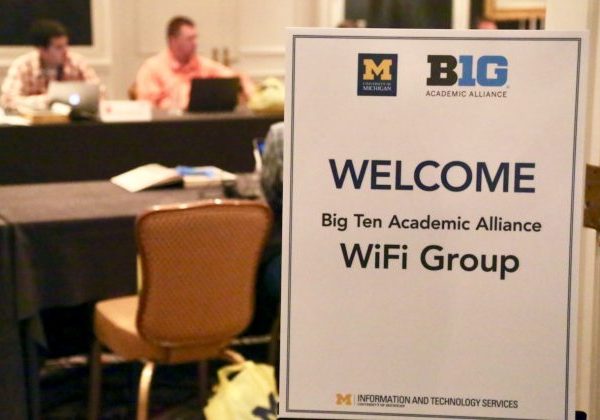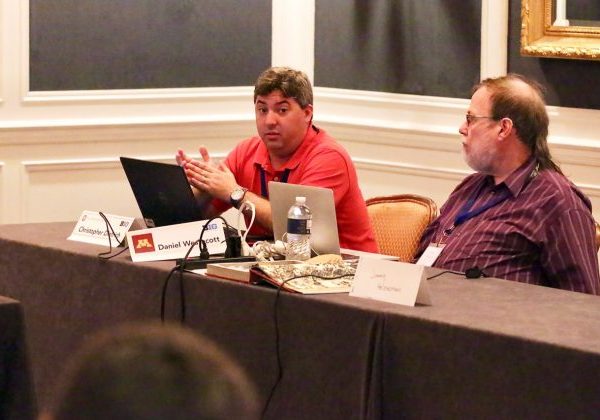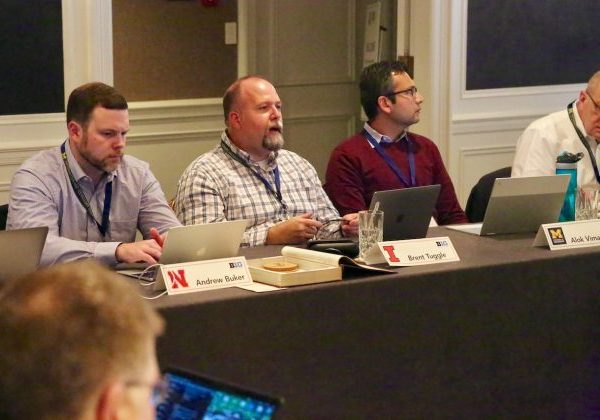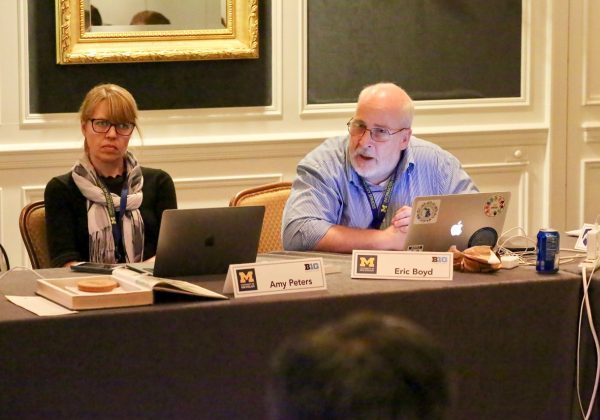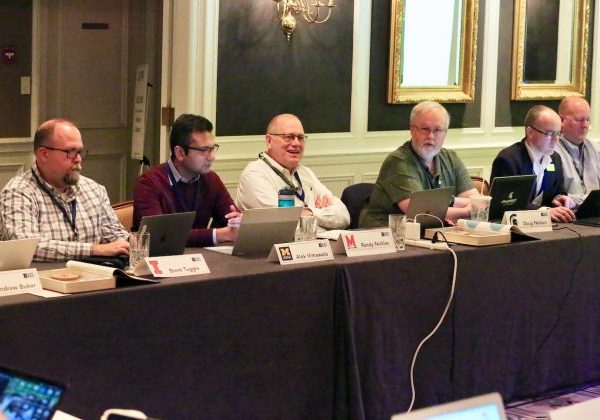On October 10-11, the U-M ITS network group hosted the Big Ten Academic Alliance (BTAA), bi-annual network leaders collaboration gathering. Close to 50 network and IT leaders from member universities of the Big Ten Network Directors and WiFi Group/IT Networking Group met at the Graduate Hotel in Ann Arbor. The last time the meeting was in Ann Arbor was in 2006.
U-M CIO Ravi Pendse opened the event by welcoming everyone to Michigan and talked about his personal involvement with network engineering and support in higher education. This prompted a great back and forth between Pendse and the BTAA networking community.
Discussion topics over the two-day event included:
- Network border security
- Network funding models
- Cloud infrastructure (AWS & Azure) as an underpinning of telecom and networking services
- Videoconferencing service definitions and support models
- And many other relevant issues
“The magnitude of network services speaks to the importance of inter-institutional networking strategy in support of the collaboration, research, data-enhanced decision-making, and security at our institutions,” says Eric Boyd, director of networks for ITS Infrastructure. “This twice-yearly meeting is incredibly valuable for sharing information among peers in a way that raises the quality of networking on all Big Ten campuses.”
U-M, one of the Alliance’s founding institutions, has been a member of the BTAA for more than sixty years. The BTAA includes major research universities with strong academic reputations that jointly provide network support for almost 600,000 students and approximately 49,000 full-time faculty members. They additionally support $9.8 billion in funded research and libraries that own over 110 million volumes.


